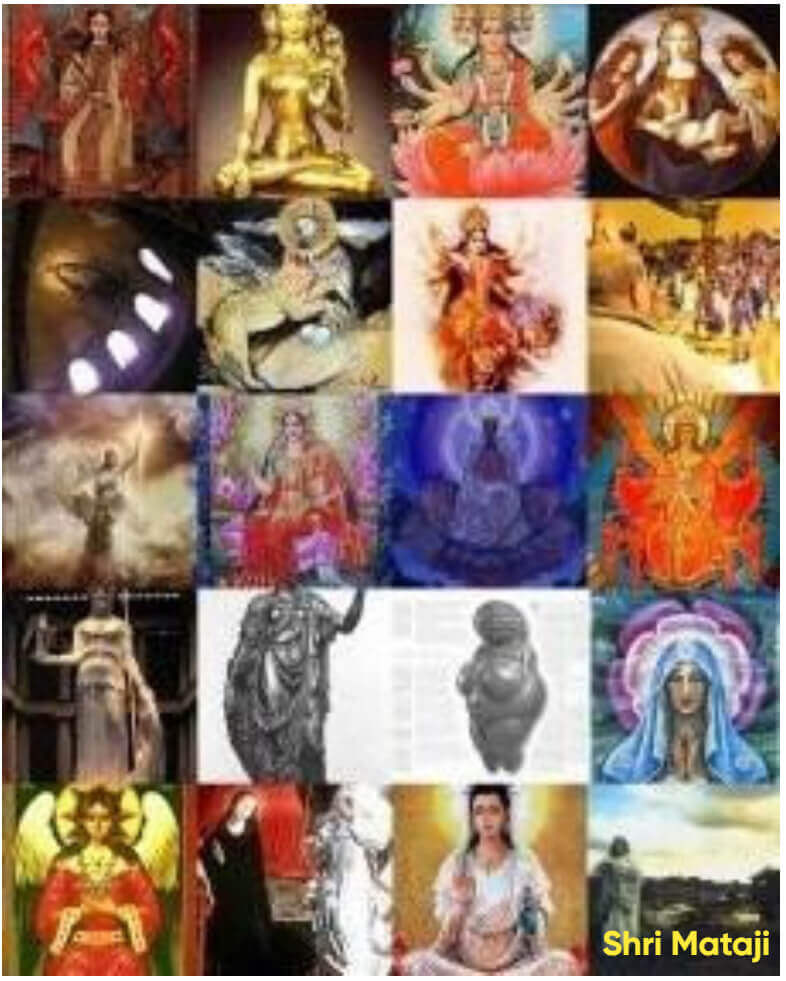Hence, he who desires salvation should divert the impure mind to pure endeavour by persistent effort—this is the very essence of all scriptures.
The Yoga Vasistha reveals that liberation is not granted by fate but earned through unwavering self-effort. Sage Vasistha instructs that the impure mind must be redirected toward noble action, spiritual inquiry, and disciplined living. Salvation arises when the seeker refuses to be ruled by inertia and instead embraces the transformative power of conscious striving. This ancient teaching affirms that divine grace flows through the channel of personal endeavor.

VASISTHA: O Rama, even as water remains water whether there are waves or no waves, whatever be the external appearance of the liberated sage, his wisdom remains unchanged. The difference is only in the eyes of the ignorant spectator. Therefore, O Rama, listen to what I am about to say: this instruction is sure to remove the darkness of ignorance.
In this world whatever is gained is gained only by self-effort; where failure is encountered it is seen that there has been slackness in effort. This is obvious, but what is called fate is fictitious and is not seen. Self-effort, Rama, is that mental, verbal and physical action which is in accordance with the instructions of a holy person well-versed in the scriptures. It is only by such effort that Indra became king of heaven, that Brahma became the creator, and the other deities earned their place.
Self-effort is of two categories: that of past births and that of this birth. The latter effectively counteracts the former. Fate is none other than self-effort of a past incarnation. There is constant conflict between these two in this incarnation; and that which is more powerful triumphs.
Self-effort which is not in accord with the scriptures is motivated by delusion. When there is obstruction in the fruition of self-effort one should examine it to see if there is such deluded action, and if there is it should be immediately corrected. There is no power greater than right action in the present. Hence, one should take recourse to self-effort, grinding one's teeth, and one should overcome evil by good and fate by present effort. The lazy man is worse than a donkey. One should never yield to laziness but strive to attain liberation, seeing that life is ebbing away every moment. One should not revel in the filth known as sense-pleasures, even as a worm revels in pus.
One who says, "Fate is directing me to do this", is brainless, and the goddess of fortune abandons him. Hence, by self-effort acquire wisdom and then realise that this self-effort is not without its own end, in the direct realisation of the truth. If this dreadful source of evil named laziness is not found on earth, who will ever be illiterate and poor? It is because laziness is found on earth that people live the life of animals, miserable and poverty-stricken.
VALMIKI: At this stage, it was time for evening prayers and the assembly broke up for the day.
VASISHTHA: As is the effort so is the fruit, O Rama. This is the meaning of self-effort, and it is also known as fate [divine will]. When afflicted by suffering, people cry, "Alas, what tragedy" or "Alas, look at my fate" both of which mean the same thing. What is called fate or divine will is nothing other than the action or self-effort of the past. The present is infinitely more potent than the past. They indeed are fools who are satisfied with the fruits of their past effort [which they regard as divine will] and do not engage themselves in self-effort now.
Sometimes it happens that without effort someone makes a great gain. For example, the state elephant chooses (in accordance with an ancient practice) a mendicant as the ruler of a country whose king suddenly died without leaving an heir; this is certainly not an accident nor some kind of divine act, but the fruit of the mendicant's self-effort in the past birth.
Sometimes it happens that a farmer's efforts are made fruitless by a hailstorm. Surely, the hailstorm's own power was greater than the farmer's effort, and the farmer should put forth greater effort now. He should not grieve over the inevitable loss. If such grief is justified, why should he not weep daily over the inevitability of death? The wise man should of course know what is capable of attainment by self-effort and what is not. It is ignorance however to attribute all this to an outside agency and to say that God sends me to heaven or to hell or that an outside agency makes me do this or that—such an ignorant person should be shunned.
One should free oneself from likes and dislikes and engage oneself in righteous self-effort and reach the supreme truth, knowing that self-effort alone is another name for divine will. We only ridicule the fatalist. That alone is self-effort which springs from right understanding that manifests in one's heart which has been exposed to the teachings of the scriptures and the conduct of holy ones.
O Rama, one should, with a body free from illness and mind free from distress, pursue self-knowledge so that he is not born again here. Such self-effort has a threefold root and therefore threefold fruit—an inner awakening in the intelligence, a decision in the mind, and the physical action.
Self-effort is based on these three: knowledge of scriptures, instructions of the preceptor, and one's own effort. Fate [or divine dispensation] does not enter here. Hence he who desires salvation should divert the impure mind to pure endeavour by persistent effort — this is the very essence of all scriptures.
Rama, the tendencies brought forward from past incarnations are of two kinds—pure and impure. The pure ones lead you towards liberation, and the impure ones invite trouble. You are indeed consciousness itself, not inert physical matter. You are not impelled by action by anything other than yourself. Hence you are free to strengthen the pure latent tendencies in preference to the impure ones. The holy ones emphasize: persistently tread the path that leads to eternal good. And the wise seeker knows: the fruit of my endeavours will be commensurate with the intensity of my self-effort, and neither fate nor a god can ordain it otherwise. Indeed, such self-effort alone is responsible for whatever man gets here. When he is sunk in unhappiness, to console him people suggest that it is his fate. This is obvious: one goes abroad and one appeases one's hunger, by undertaking a journey and by eating food—not on account of fate. No one has seen such a fate or a god, but everyone has experienced how an action (good or evil) leads to a result (good or evil). Hence, right from one's childhood one should endeavour to promote one's true good (salvation) by a keen, intelligent study of the scriptures, by having the company of the holy ones and by right self-effort.
Swami Venkatesananda, The Concise Yoga VasisthaState University of New York Press (October 1984) pp. 26-29
Therefore, one who seeks salvation must, through steadfast effort, turn the impure mind toward pure striving—for this is the very essence of all the scriptures.
Abstract
This paper explores the profound Hindu philosophical concept that salvation, or moksha, is attainable through persistent and dedicated self-effort, a teaching powerfully articulated in the ancient scripture, the Yoga Vasistha. It examines the dialogue between the sage Vasistha and the young prince Rama, where the sage elucidates the primacy of purushartha (self-effort) over destiny or fate. The paper will analyze the nature of the “impure mind” and the transformative power of “pure endeavour” in the journey towards spiritual liberation. By drawing upon the Yoga Vasistha and other scholarly sources, this paper argues that the core message of Hindu scriptures is a call to conscious, disciplined action as the means to transcend the cycle of birth and rebirth (samsara) and realize the ultimate truth of the Self (Atman).
Introduction
In the vast and diverse landscape of Hindu philosophy, the quest for salvation, or moksha, represents the ultimate spiritual aspiration. It is the liberation of the soul from the endless cycle of death and rebirth, a state of eternal bliss and union with the divine. While various paths to this goal are recognized, a central and recurring theme is the indispensable role of self-effort. This principle is perhaps most eloquently and comprehensively expounded in the Yoga Vasistha, a text that, through a dialogue between the sage Vasistha and Prince Rama, lays out a sophisticated framework for understanding the nature of reality, consciousness, and the path to liberation. The scripture’s central tenet, that “he who desires salvation should divert the impure mind to pure endeavour by persistent effort,” serves as the guiding principle for this academic exploration. This paper will delve into the philosophical underpinnings of this statement, examining the concepts of self-effort, the impure mind, and the transformative power of pure endeavor as presented in the Yoga Vasistha and corroborated by other scholarly works.
The Doctrine of Self-Effort in the Yoga Vasistha
The Yoga Vasistha presents a radical and empowering perspective on human agency. In his teachings to Rama, Vasistha systematically dismantles the notion of a pre-ordained fate that dictates human lives. Instead, he champions the power of purushartha, or self-effort, as the primary determinant of one’s destiny. Vasistha proclaims, “In this world whatever is gained is gained only by self-effort; where failure is encountered it is seen that there has been slackness in effort. This is obvious, but what is called fate is fictitious and is not seen.”[1] This bold declaration shifts the locus of control from external, unseen forces to the individual’s own will and actions.
“Self-effort, Rama, is that mental, verbal and physical action which is in accordance with the instructions of a holy person well-versed in the scriptures. It is only by such effort that Indra became king of heaven, that Brahma became the creator, and the other deities earned their place.”[1]
Vasistha further elaborates that self-effort is of two kinds: that of past births and that of the present. The latter, he asserts, has the power to counteract the former. In this view, what is commonly referred to as “fate” is nothing more than the accumulated result of one’s past actions. The present moment, therefore, holds infinite potential for transformation. “There is no power greater than right action in the present,” Vasistha insists. “Hence, one should take recourse to self-effort, grinding one’s teeth, and one should overcome evil by good and fate by present effort.”[1]
The Impure Mind and Its Transformation
The Yoga Vasistha identifies the “impure mind” as the primary obstacle to salvation. This impurity is not a moral stain but a state of ignorance (avidya) characterized by attachment to the ephemeral world of sense-pleasures and the ego’s incessant demands. The text vividly describes the dangers of this state, warning, “One should not revel in the filth known as sense-pleasures, even as a worm revels in pus.”[1] This graphic analogy underscores the corrupting and deluding nature of a mind fixated on the transient and the material. The impure mind is caught in a web of desires, aversions, and false identifications, leading to a perpetual cycle of suffering and rebirth.
The transformation of this impure mind is the central task of the spiritual seeker. The Yoga Vasistha proposes a practical and profound method for this transformation: the diversion of the mind’s energies from impure to “pure endeavour.” This is not a matter of suppression but of redirection. As Harshita Jayesh Jhala notes in her study on the value of self-effort, “The Yoga Vasistha explains that when a man constantly thinks of this impermanent world, he is actually drinking poison... In contrast, the one contemplating on the Supreme Self is said to be drinking the nectar of eternal happiness.”[2] This redirection of focus, from the external world to the inner Self, is the essence of pure endeavor.
Pure Endeavour: The Path to Liberation
Pure endeavor, as described in the Yoga Vasistha, is a multifaceted approach that encompasses intellectual understanding, mental discipline, and righteous action. It is a conscious and persistent effort to align one’s thoughts, words, and deeds with the ultimate goal of self-realization. Vasistha outlines a threefold basis for this endeavor: “knowledge of scriptures, instructions of the preceptor, and one’s own effort.”[1] This highlights the importance of a balanced approach that combines scriptural wisdom, the guidance of a qualified teacher, and the individual’s own dedicated practice.
The scripture further categorizes the tendencies of the mind into two types: pure and impure. The pure tendencies lead towards liberation, while the impure ones lead to bondage and suffering. The seeker’s task is to consciously cultivate the pure tendencies and weaken the impure ones. This is achieved through practices such as self-inquiry, meditation, and the cultivation of virtues like compassion, contentment, and dispassion. As the paper by Clifmond Shameerudeen on salvation in Hinduism notes, the ultimate purpose of salvation (moksha) is to “allow Hindus to enter into eternal bliss or become one with God (merge with the Supreme Force).”[3] This merging with the divine is the ultimate fruit of pure endeavor.
Conclusion
The timeless wisdom of the Yoga Vasistha, encapsulated in the powerful declaration that “he who desires salvation should divert the impure mind to pure endeavour by persistent effort,” offers a profound and empowering message for humanity. It is a call to reclaim our innate power as conscious creators of our own destiny, to reject the disempowering notion of a predetermined fate, and to embrace the path of self-effort as the key to spiritual liberation. The teachings of Vasistha provide a clear and practical roadmap for this journey: a journey that begins with the recognition of the impure mind’s attachments and delusions, and culminates in the realization of the pure, unconditioned Self. By diligently applying the principles of pure endeavor—through scriptural study, the guidance of a preceptor, and one’s own unwavering effort—the seeker can transcend the limitations of the ego and the world, and attain the ultimate goal of moksha. This, as the scripture so eloquently states, is the very essence of all scriptures: a testament to the transformative power of human will and the boundless potential of the human spirit.
References
[1] Swami Venkatesananda. "The Concise Yoga Vasistha." State University of New York Press, 1984, pp. 26-29.[2] Jhala, Harshita Jayesh. "09 THE VALUE OF SELF-EFFORT (Jun 2017)." Vedanta Kesari, June 2017.
[3] Shameerudeen, Clifmond. "Salvation in Hinduism." Journal of Adventist Mission Studies, vol. 19, no. 1, 2024, pp. 45-64.


